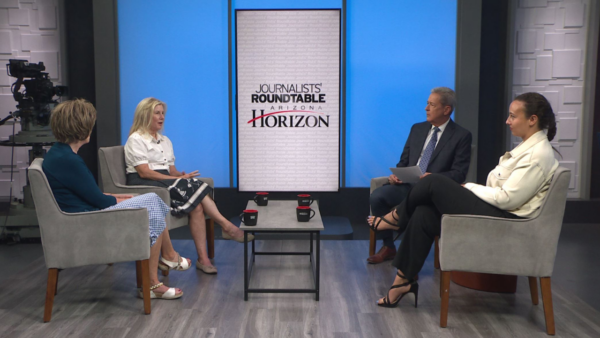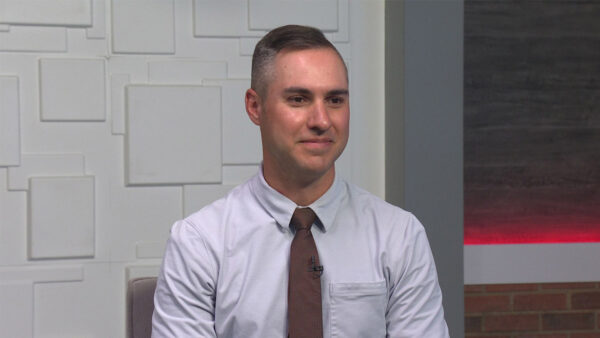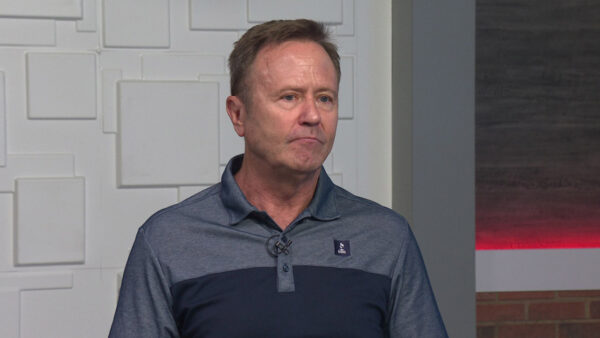A federal appeals court has ruled that the internet can be regulated like a utility, as the legal battle over the issue referred to as “net neutrality” continues. At issue is whether internet companies can provide different delivery rates for web services. Attorney James Goodnow from Fennemore Craig will talk about the ruling.
Ted Simons: Welcome finally to "Arizona Horizon." I'm Ted Simons. Arizona Senator John McCain said today President Obama is directly responsible for the mass shooting in Orlando, Florida. Mccain said that quote Barack Obama is directly responsible for it because when he pulled everybody out of Iraq AL Qaeda went to Syria, became Isis and Isis is what it is today thanks to Barack Obama's failures. Utter failures by pulling everybody out of Iraq. The responsibility for it lies with President Barack Obama and his failed policies. Now, McCain made the comments as President Obama was in Orlando visiting survivors and families of those who lost loved ones in the worst mass shooting in U.S. history. Senator McCain later backed off his original statement in an email saying I misspoke. I did not mean to imply the president was personally responsible. I was referring to his national security decisions, not the president himself.
Ted Simons: Arizona jobless rate went up for the second month in a row. The unemployment rate in May was at 5.6% up from 5.5% in April. 5.4% in March. A year ago the state's jobless rate was 5.8%. State Department -- Department of State says the state lost over 19,000 nonfarm jobs in May mostly due to government jobs lost with the end of the school year. Over all seven economic sectors lost jobs in May, three including manufacturing and construction added jobs with one sector unchanged.
Ted Simons: In the latest battle over net neutrality a federal appeals court has ruled the internet can be regulated like a utility. Here to explain what that means and how the decision will impact the internet welcome attorney James Goodnow from the law firm Fennemore Craig. Thanks for being here.
James Goodnow: My pleasure. Thanks for having me.
Ted Simons: What is net neutrality?
James Goodnow: Net neutrality is the basic concept that internet service providers can't be the gate keepers of information on the internet. All data must be treated equal or more fundamentally that cable companies can't favor certain websites over others in terms of download speeds.
Ted Simons: And the idea is that there's no preferential treatment for somebody because they are providing something extra or there's extra content? What's going on here?
James Goodnow: The biggest concern is that the cable companies or internet service providers will create a fast lane to consumers. If you want to get in that fast lane, you need to pay big bucks to the internet service providers. So practically what that means is the little guys, the face books, the startups, in the garages, won't have the funds to pay the premium to get that fast access and those websites will be disfavored, go away and it's the big boys that will get to consumers.
Ted Simons: That is what the broadband industry wanted. They wanted those two tiers, did they not?
James Goodnow: They certainly did and good reason for it. It's a massive revenue generator for them. They say the argument and there's some validity to this, if we're going to invest millions, billions in infrastructure we need to make sure that we know there's a chance of a return before we pony up the bucks.
Ted Simons: They are basically saying they are more than a utility; they are discretionary consumer experience, correct? An option for consumers as opposed to a utility. That's their point?
James Goodnow: The point is -- yes. They are not looking at it in terms of fundamental need like power or water or the phones. They are saying that this is a choice but fundamentally they are also saying that this is not this is a luxury. The D.C. circuit disagrees. The internet according to the D.C. circuit is so fundamental to our existence, so fundamental to our democracy that it has to be safeguarded.
Ted Simons: Was that decision a surprise?
It was a surprise. Most people didn't expect these FCC regulations to be upheld. If they were, they didn't expect them to be upheld wholesale. This is what happened here. It was a 2-1 decision, two of the judges in favor, one blistering dissent, but here you really did see a huge win for the FCC, a huge win for the Obama administration.
Ted Simons: So providers can't block websites any more 1234.
James Goodnow: Correct. At least if you go back to last year the FCC promulgated new rules. These are the net neutrality rulings that say no favoritism. You have to give equal access to everybody. You can't block websites and you can't throttle them back. The big concern is the internet service providers would give a slow connection to the startups and fast connections to the big ones. If you want to think about it imagine a power company and the power company as of today is neutral. You can plug in any single device and it will work, but imagine if you plugged in a Samsung TV, it works perfectly because Samsung has paid a premium to the power company. If you get the Costco knock-off that didn't have the funds to pay the power company, maybe it will work, maybe it won't. You can't be sure. That is what is at stake here.
Ted Simons: When you put it that way, it doesn't seem like much of a surprise at all. If you see that that's where the logical ends to all this would be, I don't know how you would rule the other way. You can't allow that to happen on the internet, can you?
James Goodnow: The D.C. circuit seems to agree. The counter argument is free market principle that we don't need government regulation. We don't need big brother telling us what we can and can't do. This is a free market economy. Let's let the market decide. That really is the fundamental principle. We don't need government meddling with another institution, another industry right now. You had a lot of people who objected to that. There were also fair concerns about employment. If you don't have the cable companies, the internet service providers investing in this infrastructure you won't have the workers to build it which means jobs may be lost or there won't be as many in the future. That's an important consideration in the economy as well.
Ted Simons: So the broadband community will I would think obviously challenge this ruling will they not? Will they take this to the Supreme Court?
James Goodnow: Absolutely they will challenge this. Most likely you'll see this going back to the D.C. circuit. We had three judges that looked at it now. You go back, you have the full panel of 11 judges. At that point regardless of the outcome you can expect an appeal to the U.S. Supreme Court, which opens all kinds of political issues because as you know right now we have a missing justice, no one is replacing Justice Scalia. Based on what we would expect from previous decisions you would see this as a four-four split decision, which means that the next president of the United States would appoint the justice that would be the swing vote here.
Ted Simons: That's if the Supreme Court takes the case.
James Goodnow: Correct. It's unclear no one knows most cases of course are not taken up by the U.S. Supreme Court. But here is an interesting one. You have one of the most fundamental concepts in our country at stakes. Free speech. The court always would like to weigh in on that. Here you have this dissenting opinion that raises some compete willing concerns about all of the issues we have discussed now about free market principles. So before you have regulations that go down a road, the court may want to weigh in on this saying this is so fundamental to our democracy, our country, that we need a ruling on this.
Ted Simons: This is a big decision. People hear net neutrality and they faze off, eyes glaze. The way you describe it, fast lane, slow lane, whether or not everyone has a free chance on the internet, makes for a very interesting discussion. Good to have you here.
James Goodnow: My pleasure, thanks for having me.
Video: Introducing classical Arizona PBS, your classical music connection. On TV listen on digital channel 8.4. On the go download the free classical Arizona PBS app to stream performances. Find out about classical concerts and watch exclusive video. Download the free app then follow classical Arizona PBS on Facebook and twitter for news, photos and events near you. Classical Arizona PBS, your classical music connection.
James Goodnow: Attorney at Fennemore Craig























